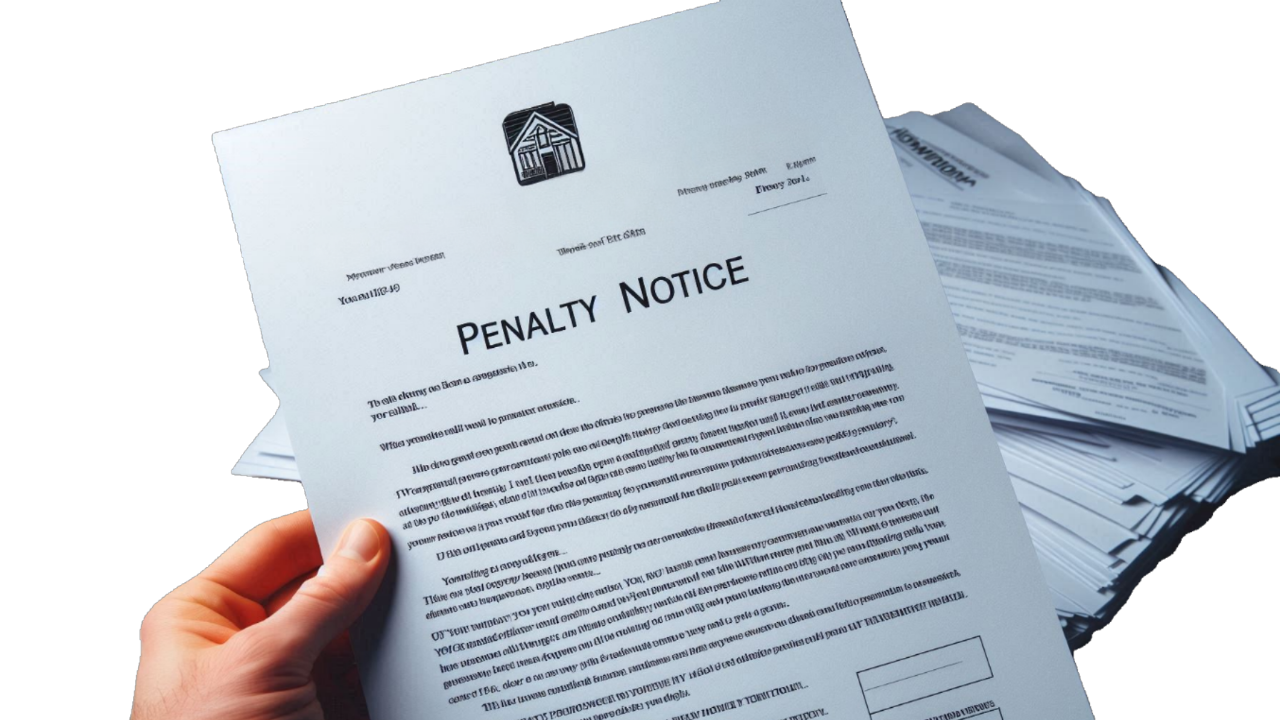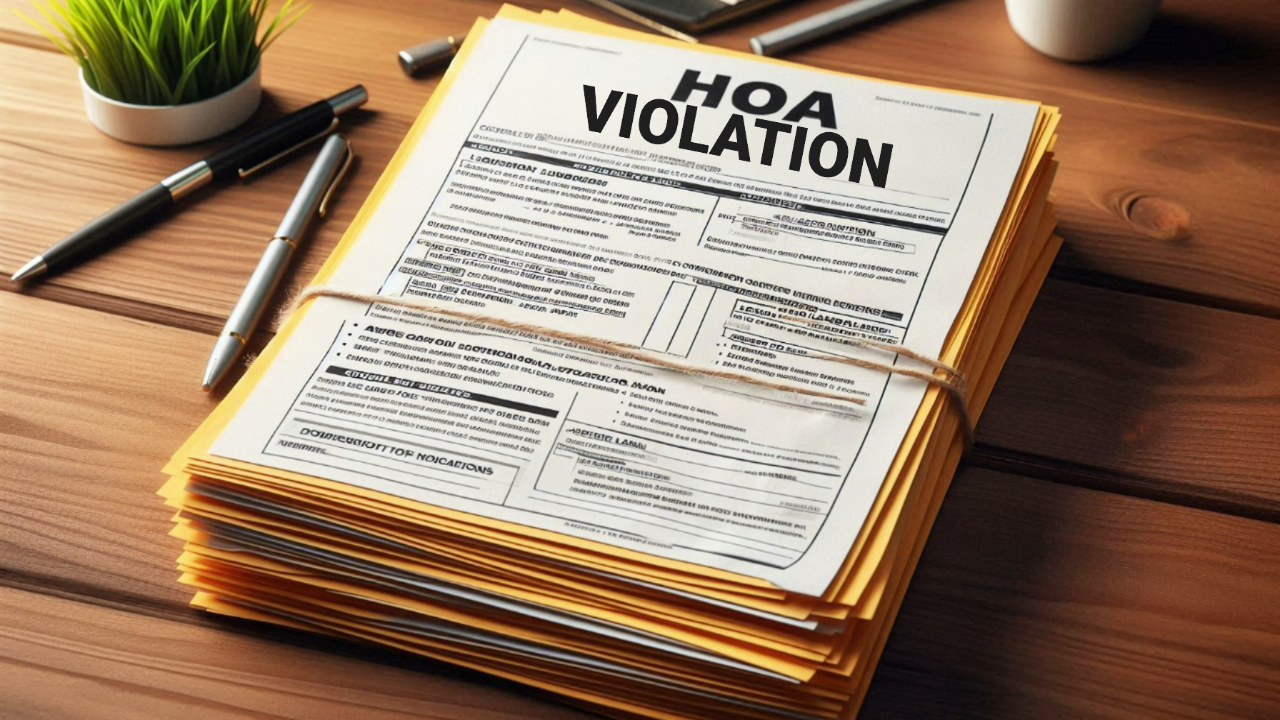Can My HOA Really Fine Me? Legal Limits on HOA Enforcement

Homeowners Associations (HOAs) play a major role in maintaining community standards, but many homeowners are surprised to learn just how much authority their HOA has—including the ability to impose fines. But can your HOA really fine you? The answer is yes—but only within legal limits. Understanding these boundaries is crucial to protecting your rights as a homeowner.
The Basics of HOA Authority
When you buy a home in an HOA-governed community, you agree to follow its rules—typically laid out in the Covenants, Conditions, and Restrictions (CC&Rs), as well as bylaws and community guidelines. These documents outline what the HOA can regulate, from paint colors and landscaping to parking and pet policies.
In most states, including California, HOAs have the legal authority to issue fines for rule violations. However, that power isn’t unlimited.
Discover: Can an HOA Enter Your Property to Fix Landscaping Without Permission?
Legal Requirements for Fining Homeowners
Here are several imp...
10 Legal Reasons to Deny a Tenant

Renting out property comes with both rights and responsibilities for landlords. While fair housing laws prohibit discrimination based on race, religion, national origin, sex, disability, or familial status, landlords are legally allowed to deny rental applications for valid, non-discriminatory reasons. Here are 10 legal reasons to deny a tenant:
1. Poor Credit History
A credit check reveals how well a tenant manages debt. If a prospective renter has a low credit score, multiple late payments, or accounts in collections, a landlord may reasonably worry about their ability to pay rent on time and deny their application.
2. Insufficient Income

Most landlords require tenants to earn at least two to three times the monthly rent. If an applicant cannot demonstrate adequate income through pay stubs, tax returns, or employment verification, it’s legal to deny them based on the risk of rent default.
3. Criminal Background
While landlords must be cautious about blanket policies that excl...
Using Life Insurance as Part of Your Estate Plan

Estate planning is often associated with wills and trusts, but one of the most powerful and flexible tools in an estate planner’s toolkit is life insurance. Whether you're aiming to protect your loved ones, manage taxes, or transfer wealth efficiently, life insurance can play a critical role in achieving your goals. For individuals and families alike, understanding how to integrate life insurance into an estate plan is essential for long-term financial security.
Why Life Insurance Matters in Estate Planning
At its core, life insurance provides a tax-free death benefit to beneficiaries, ensuring financial stability for your loved ones after you pass away. Unlike many other estate assets, life insurance proceeds are typically paid out quickly, helping survivors manage immediate expenses like funeral costs, mortgage payments, or outstanding debts. For those with larger estates, life insurance can also offer strategic advantages in reducing estate taxes and preserving wealth across gener...
Employment Contracts for Small Businesses: What to Include and Why

When running a small business, every employee plays a vital role in the company’s success. Having a clear and legally sound employment contract is essential for protecting both the employer and the employee. An employment contract sets expectations, outlines responsibilities, and helps prevent misunderstandings that could lead to disputes. For small businesses with limited legal resources, understanding what to include in these contracts is especially important.
Why Employment Contracts Matter
Employment contracts formalize the working relationship. They protect your business from legal challenges and provide employees with clarity about their roles and benefits. In the absence of a written agreement, the terms of employment can become ambiguous, leading to potential liabilities. Contracts also give your business credibility and professionalism, which can be key to attracting and retaining talent.
Key Elements to Include in an Employment Contract
Job Title and Responsibilities
Cle...
Can an HOA Enter Your Property to Fix Landscaping Without Permission?

Homeowners’ Associations (HOAs) are responsible for maintaining the appearance and standards of a neighborhood, which often includes enforcing landscaping rules. However, many homeowners wonder: Can an HOA legally enter your property to fix landscaping without your permission? The answer depends on several factors, including your HOA’s governing documents, the nature of the violation, and local laws.
Understanding HOA Authority
An HOA’s power to act is outlined in its governing documents—typically the Covenants, Conditions, and Restrictions (CC&Rs), bylaws, and rules and regulations. These documents may include provisions that allow the HOA to take corrective action if a homeowner fails to comply with landscaping standards. However, this does not mean they have unlimited access to your private property.
In most cases, HOAs can only enter certain parts of your property—usually what’s classified as "common areas" or "easements"—unless they have explicit permission or an emergency situ...
How to Respond to an HOA Violation for Lawn or Landscape Issues

Homeowners’ Associations (HOAs) are designed to maintain the appearance and value of neighborhoods through rules and regulations. One common issue that arises is HOA violations related to lawns or landscaping. If you receive a notice of violation, it’s important to handle the situation promptly and professionally. Here's a step-by-step guide on how to respond to an HOA violation concerning your lawn or landscape.
1. Review the Violation Notice Carefully
The first step is to read the notice thoroughly. Identify what specific rule you are alleged to have violated. HOAs typically reference the relevant clause in the community’s Covenants, Conditions, and Restrictions (CC&Rs). Take note of the deadline given to resolve the issue, any potential fines, and whether there is an appeal process.
2. Understand the Rules

If you're unsure about the violation, revisit the HOA's governing documents, especially the landscaping guidelines. Some HOAs have strict requirements about grass height, ty...
What Is a Trust Protector — And Do You Need One?

Estate planning involves several important decisions, and for those using trusts to protect and manage assets, appointing a trust protector can add an extra layer of oversight and security. While not always necessary, a trust protector can play a vital role in ensuring that a trust remains effective and adaptable over time. Understanding what a trust protector is—and whether you need one—can help you make smarter, more flexible estate planning choices.
What Is a Trust Protector?
A trust protector is a person or entity appointed to oversee a trust and ensure that it operates according to the trust creator’s (or grantor’s) intentions. Unlike a trustee, who manages the day-to-day administration of the trust and handles distributions to beneficiaries, a trust protector serves a supervisory role. Their powers and responsibilities are defined in the trust document and can vary widely depending on the grantor’s preferences.
Trust protectors are more common in irrevocable trusts, which are ...
The Risks of Not Having a Copyright Policy for Your Business Content

In today’s digital age, content is a critical asset for any business. From blog posts and videos to marketing materials and website copy, the content a company creates helps define its brand, communicate with customers, and drive growth. However, many businesses overlook a key component of content management: having a clear and enforceable copyright policy. The absence of such a policy can expose a business to significant legal, financial, and reputational risks.
Legal Vulnerabilities
Without a copyright policy, a business leaves itself open to both copyright infringement and misappropriation issues. Employees, contractors, or third parties might unknowingly use copyrighted materials—such as images, music, or text—without permission. If the original copyright holder discovers the unauthorized use, the business could face legal action, fines, or be forced to take down valuable content. Conversely, if your business creates original content but lacks a copyright policy, others could use...
Legal Steps to Take When a Commercial Tenant Damages Your Property

Property damage caused by a commercial tenant can lead to significant financial and legal challenges for landlords. Whether it’s structural damage, unauthorized alterations, or neglected maintenance, such incidents not only affect the property’s value but can also hinder its future use or leasing potential. It’s essential for landlords to understand the legal steps they should take to protect their investment and seek appropriate remedies.
1. Review the Lease Agreement
The first step is to carefully review the lease agreement. Most commercial leases contain specific clauses that outline tenant responsibilities related to property care, maintenance, alterations, and damage. These clauses typically require the tenant to return the property in its original condition (reasonable wear and tear excepted) and may include provisions for inspections, security deposits, or required repairs.
Understanding the terms of the lease will help determine whether the damage constitutes a breach and wh...
Nuisance Claims and Neighbor Disputes in Commercial Real Estate

Commercial real estate often brings together various stakeholders—property owners, tenants, developers, and neighboring businesses. While these relationships can be mutually beneficial, conflicts may arise, particularly in the form of nuisance claims and neighbor disputes. These disputes can affect the value, usability, and profitability of commercial properties, making it essential for stakeholders to understand their legal and practical implications.
What Is a Nuisance Claim?
In the context of commercial real estate, a nuisance claim typically involves an allegation that a property owner or occupant is interfering with the use and enjoyment of a neighboring property. This interference can be public—impacting a larger community—or private, affecting specific neighbors. Common sources of nuisance complaints include excessive noise, odors, vibrations, pollution, lighting, or obstructive signage. In commercial settings, issues may stem from restaurant exhaust systems, manufacturing noi...